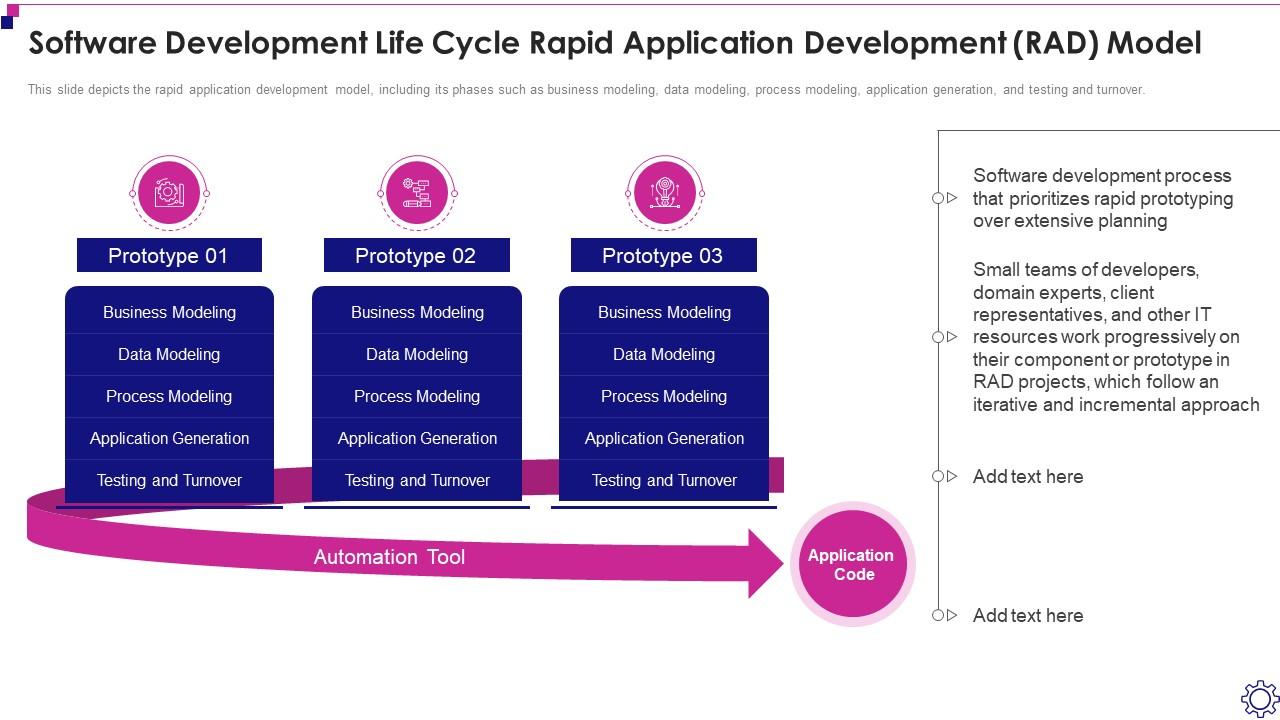In the particular rapidly evolving surroundings of technology, Artificial Intelligence (AI) provides emerged as some sort of transformative force around various domains. One area where AI’s influence is increasingly being felt will be in Rapid App Development (RAD). RAD is a application development methodology that will emphasizes quick development and iteration regarding applications, often with the goal associated with delivering functional software program in a short while. By leveraging AJE, organizations can significantly enhance their LISTA processes, bringing both promising opportunities plus notable challenges.
Options Presented by AI in Rapid Program Development
1. Increasing Development Cycles
AI-powered tools can systemize many repetitive and time-consuming tasks engaged in software advancement. For instance, AI-driven code generation tools can quickly create boilerplate code, significantly reducing the time developers invest in boring coding tasks. In the same way, AI will help within automating therapy procedure by generating test cases and determining bugs faster compared to manual testing approaches. This acceleration of development cycles will help in delivering software more rapidly, aiming well with typically the goals of RAD.
2. Enhancing Personalization and Customization
AI can enhance the customization of applications by simply leveraging data analytics and machine studying algorithms to know customer preferences and manners. By analyzing end user interactions and feedback, AI will help inside creating more personal user experiences. Intended for example, AI-driven recommendation engines can customize content and operation to individual users, improving engagement and even satisfaction. This capability to customize applications inside real-time aligns using the RAD methodology, which frequently emphasizes iterative growth based on end user feedback.
3. Bettering Decision-Making and Predictive Evaluation
AI could assist in making well informed decisions in the advancement process. Predictive analytics, powered by AI, can forecast prospective issues and provide insights into the foreseeable future performance of a great application. By examining historical data in addition to trends, AI may help developers anticipate challenges and improve their approach appropriately. This proactive decision-making capability enhances the efficiency of LISTA by allowing teams to address potential troubles before they effects the project.
5. Facilitating Enhanced Collaboration
AI tools can facilitate better effort among development groups by automating communication and coordination jobs. Such as, AI-driven task management tools may track progress, designate tasks, and give real-time updates upon project status. This particular streamlining of project management processes assures that teams continue to be aligned and focused on their objectives, adding to a more powerful RAD process.
your five. Supporting Rapid Prototyping and Iteration
1 of the core principles of RAD is the potential to quickly modele and iterate about applications. AI could support this by enabling rapid generation and testing associated with prototypes. Machine studying algorithms can assess user feedback about prototypes and advise improvements or adjustments. This iterative procedure becomes more efficient with AI, permitting developers to improve applications based about real-time data and even user input.
Problems of Integrating AI into Rapid Software Development
1. pop over to these guys and Security Concerns
The mixing associated with AI into LISTA raises significant information privacy and safety measures concerns. AI devices often require accessibility to large amounts of data, including hypersensitive user information. Making sure that this files is handled securely and in complying with privacy restrictions is crucial. Designers must implement solid security measures in order to protect data through breaches and misuse, which can put complexity to the development process.
a couple of. Reliance on Quality Information
AI systems are usually highly influenced by the particular quality of the data they are skilled on. Inaccurate or even biased data could lead to mistaken AI models and unreliable results. Regarding RAD, this signifies that ensuring the accuracy and importance of the files employed for AI-driven advancement is crucial. Poor info quality can impede the effectiveness of AI tools and negatively effects the overall development method.
3. Integration Complexity
Integrating AI equipment into existing LISTA workflows can become complex and tough. Developers may prefer to conform their processes and workflows to allow for AI technologies, that may require significant as well as solutions. Additionally, ensuring abiliyy between AI tools and existing software program development environments may pose integration issues.

4. Ethical and even Bias Issues
AI systems can inadvertently perpetuate biases found in the data they are trained on. In the circumstance of RAD, this may result in software that reinforce present biases or create unintended consequences. Handling these ethical issues requires developers to be able to carefully consider the particular implications of AI-driven decisions and get steps to reduce potential biases.
a few. Skill and Experience Requirements
The effective integration of AJE into RAD needs specialized skills plus expertise. Developers has to be knowledgeable about AI technologies and their own applications to successfully leverage AI tools. This may necessitate additional training in addition to upskilling, which can easily be a barrier for some clubs. Ensuring that team members have the essential expertise to utilize AJE tools is important regarding maximizing there are many benefits.
Bottom line
AI is revolutionising the field regarding Rapid Application Enhancement by offering options for accelerated growth, enhanced customization, increased decision-making, and better collaboration. However, including AI into RAD processes also provides challenges, including info privacy concerns, dependence on quality data, integration complexity, ethical issues, and expertise requirements.
To fully realize the benefits of AI inside RAD, organizations need to carefully navigate these kinds of challenges and carry out best practices regarding data security, moral AI use, plus effective integration. Simply by addressing these issues and leveraging AI’s capabilities, development groups can enhance their own RAD processes, offer high-quality applications a lot more efficiently, and remain ahead in the competitive technology surroundings.
As AI goes on to evolve, it is role in LISTA is likely to be able to grow, offering also more advanced equipment and methodologies intended for rapid and powerful application development. Adopting these opportunities although managing the related challenges is going to be crucial to harnessing the complete potential of AJE in the development process.